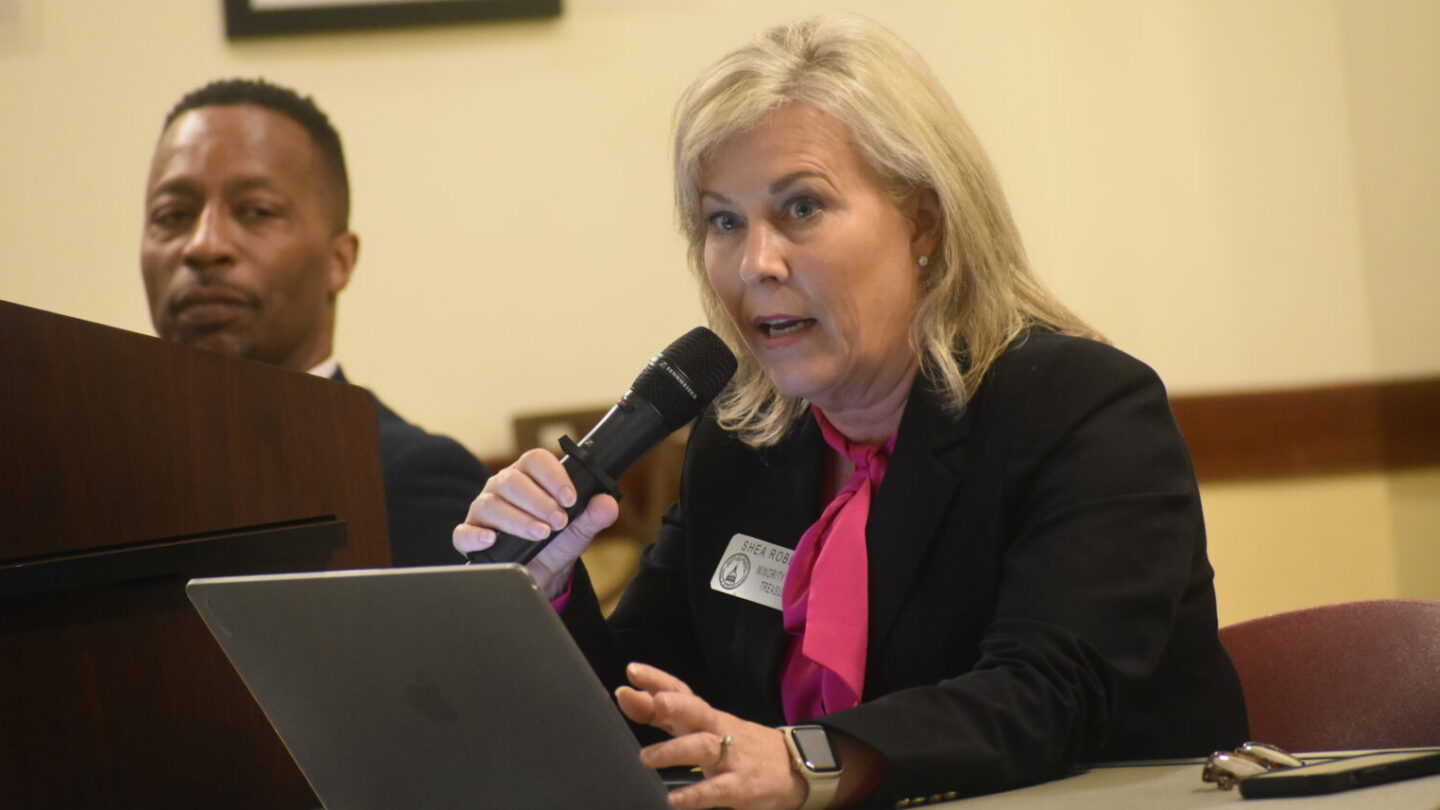Every year, Georgia lawmakers come to Atlanta to make laws. But what if regular Georgians could directly participate in drafting legislation? That’s what some Democratic House members are asking with longshot legislation seeking to amend the state constitution and allow voters to directly weigh in on state laws during elections.
Speaking to reporters on a Zoom call late last week, Atlanta Democratic Rep. Shea Roberts said constituents began asking her about the idea around the time Kansas voters shot down a proposed amendment banning abortion. Ohio voters passed a constitutional amendment protecting abortion rights late last year.
An Atlanta Journal-Constitution poll released last month found 44% of voters said abortion should be easier to obtain in Georgia, 18% said it should be harder to obtain, and 29% said the current restrictions should remain.
Other results seem to put respondents more at odds with state leadership — while Gov. Brian Kemp has signaled 2024 is the year to expand school vouchers, the poll found 60% somewhat or strongly disapprove of the idea, while only 35% strongly or somewhat approve
The same poll found 69% of Georgians expressing support for expanding Medicaid coverage and only 22% saying no thank you, while state Republican leaders are less fully committed.
Roberts said citizens and elected officials do not see eye to eye on other issues like gun laws or environmental protections.
“All of these polls show that more than a majority of Georgians want to talk about these issues that are important to them,” Roberts said. “And so Democrats, we file the bills in every session and Republicans won’t even give us a hearing. We just feel like that’s not the representative democracy that our forefathers promised us.”
Roberts said 24 other states allow some form of ballot referendum.
Her plan for Georgia’s method to change state law would require 8% of Georgians who voted in the previous presidential election to sign a petition, which would allow the question to go on the ballot in the next general election, and if 60% of voters then approved, it would become law.
Amending the state constitution would be a steeper challenge, requiring 10% of voters to sign a petition and two-thirds of voters to approve the amendment.
Allowing voters to pass laws in this way would require an amendment to the state constitution, which only grants legislative power to the state Legislature, and right now the only way to get a constitutional amendment requires two-thirds votes in both chambers instead of a simple majority vote, before voters can have the final say. With Republicans controlling both the House and the Senate, a Democratic-led bill to dilute the Legislature’s power is a tough outcome to imagine.
“It’s somewhat ironic that these same issues that we are trying to defeat by passing this bill, we are now confronting with the passage of this constitutional amendment and enacting legislation,” said co-sponsor Saira Draper, an Atlanta Democrat. “Our purpose in this is really to call out the hypocrisy of what has happened, to bring attention. Of course we want to pass it. Of course we want to pass it. But we very much want to call attention to the fact that the will of the people is not being recognized here under the Gold Dome.”
This story was provided by WABE content partner Georgia Recorder.









